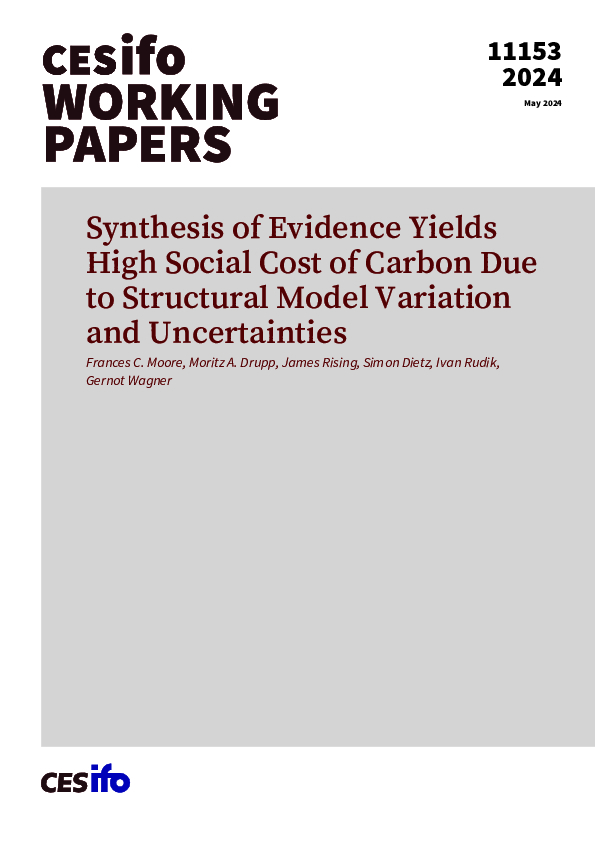Synthesis of Evidence Yields High Social Cost of Carbon Due to Structural Model Variation and Uncertainties
CESifo, Munich, 2024
CESifo Working Paper No. 11153

Estimating the cost to society from a ton of CO2 - termed the social cost of carbon (SCC) - requires connecting a model of the climate system with a representation of the economic and social effects of changes in climate, and the aggregation of diverse, uncertain impacts across both time and space. Increasingly a growing literature has examined the effect of fundamental structural elements of the models supporting SCC calculations. This work has accumulated in piecemeal fashion, leaving their relative importance unclear. Here we perform a comprehensive synthesis of the evidence on the SCC, combining 1823 estimates of the SCC from 147 studies with a survey of authors of these studies. The distribution of published 2020 SCC values is wide and substantially right-skewed, showing evidence of a heavy right tail (truncated mean of $132). Analysis of variance reveals important roles for the inclusion of persistent damages, representation of the Earth system, and distributional weighting. However, our survey reveals that experts believe the literature is biased downwards due to an under-sampling of structural model variations and biases in damage-function and discount-rate. To address this imbalance, we train a random forest model on variation in the literature and use it to generate a synthetic SCC distribution that more closely matches expert assessments of appropriate model structure and discounting. This synthetic distribution has a mean of $284 per ton CO2, respectively, for a 2020 pulse year (5%–95% range: $32–$874), higher than all official government estimates, including a 2023 update from the U.S. EPA.
Energy and Climate Economics